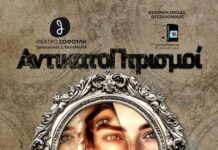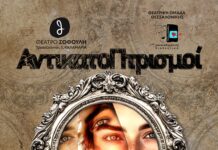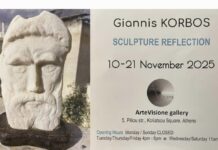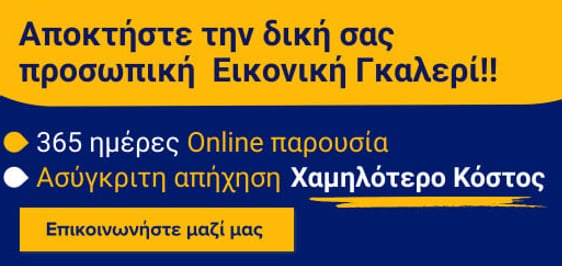Επιμέλεια: Εύα Πετροπούλου Λιανού
We all know poetry is an art which could be applauded as the finest form of all arts. If we would like to trace the beginning of this art form, we have to dig deep into the ancient history of human civilization. We would eventually find out that, poetry was there even before the age of literacy. In ancient history of mankind, poetry was there as means of recording oral history, storytelling. Preliterate societies, lacking the means to write down important cultural information, use similar methods to preserve it. If we would like to trace the origins of myths, we may end up to these recording of oral histories in form of poetry. So, in past poetry had a linkage with ancient histories also. The greater part of world’s sacred scriptures is also made up of poetry. So, we can say; it is poetry through which human civilization had evolved around to express its’ own sentiment, feelings and stories. The use of verse to transmit cultural information continues today.
In the ancient era, poetry was basically a performing art. There was no method of writing down it. So, the performers or the composers had to memorise the entire stories and enact them in front of an audience. As such, there was a possibility of alteration of actual words and rhyme from one performer to another. Or from one performance to other. We can also assert that poetry has its origins in song. As we know, people of preliterate era had no means to write down their feelings and stories. They could only utter their joy and agony in oral form of rhyme with rhythmic intensity towards musical inclination. So, poetry actually originates from song. Of course, in the traditional European epics, such as Homeric and Hesiodic epics, the earliest surviving poems of Europe identify themselves as poems to be recited or chanted to a musical accompaniment rather than as pure song. With the invention of writing methods, this oral era of performing poetry had changed dramatically. One could also read a written poem. Moreover, the chance of surviving of the entire content of the written poem had also increased. Again, with the invention of printing technology poetry has come out of the clutch of mere oral and performing era of pre literacy age.
With the development of literacy poetry has traversed many centuries to reach its present form. European poetry is no exception. It has also evolved around European socio-political and cultural evolutions. It has witnessed the European Renaissance. Gone through it and had emerged as a more subtle art form. European Renaissance had awakened the intellect of educated people to find out truths in all spheres of life. It had enabled people and artists alike to comprehend the art of living. This awakening of a new enthusiasm had helped Europe to shape its’ politics, religion, society, culture and literature as a whole. All these had shaped the post Renaissance European poetry. And with the scientific and technological evolution of the following eras European poetry had gone through a dramatic changeover and stepped into the threshold of modern period. During the following eras European poetry had gone through various experiments. It had shaped lot of ideas and ideologies. Asked new questions, tried to fathom deep into the previously unanswered questions. But it had never lost belief in man. It had always upheld the idea of love and prosperity. Except few exceptions these were the characteristics European poetry which had also affected the colonial literatures around the world.
Yet after the two world wars European poetry has gone through a great turmoil. The faith on the benevolence of mankind has received a great setback. Which was the epitome of the post Renaissance periods. People has lost beliefs in moral values of life. Nobody is above suspicion. None to believe. Life has become a trifle affaire. Everything seems to be too insignificant to uphold or justify as good. The highway of post war poetry of Europe has largely been paved by these negative effects. Of course, European poetry contains within its multiplicities. There are so many countries with different cultural inheritance and traditions. Also, there are so many conflicts among various nationalities, cultural differences, Yet Europe is united in its soul with a common heritage of ancient culture. Which we can describe as European culture in a broad sense. This soul has gone through great upheavals yet remain European within. I think this is the greatest strength of Europe. Yes, European poetry bears this essence in its every layer. European poetry of this present millennium is no exception at all. We have to watch its present as well as future progressions carefully only to see how it manages to restore the ultimate belief on the benevolence of mankind.
1st January’ 2020
©NilavroNill































![Έλενα Παπαρίζου x Marseaux x Joanne «Κάτσε Καλά [Arcade Remake]»](https://www.polismagazino.gr/wp-content/uploads/2022/09/Screenshot_20220928_064330-218x150.jpg)


